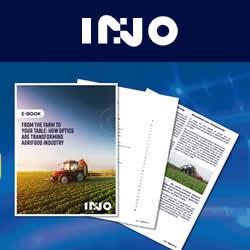The integration of real-time weather forecasting is just one example of how technology can be used to create a more harmonious relationship between industry and nature, ultimately leading to a more sustainable world.
 The Power of Real-Time Weather Forecasts
The Power of Real-Time Weather Forecasts

Article from | Heliospectra
Making the Horticultural industry more sustainable with energy saving
In the time where sustainability and energy efficiency are more than just buzzwords, industries across the globe are continuously seeking innovative solutions to minimize their carbon footprint. Heliospectra is at the forefront of the transformation in controlled environment agriculture (CEA) with smart LED lighting solutions uniquely designed for horticulture. Our approach goes beyond just providing advanced LED lights. We’re integrating technology, data, and nature to build a more sustainable future.
The Role of LED Lighting in Modern Horticulture
LED lighting has revolutionized the horticultural sector, particularly in indoor farming and greenhouses. These lights offer a more energy-efficient alternative to traditional high-pressure sodium (HPS) lamps, providing growers with the ability to fine-tune light spectra, intensities, and photoperiods to optimize plant growth. However, even with these advancements, there is still potential to further reduce energy consumption — which is where real-time weather forecasting comes into play.
Integrating Real-Time Weather Data with LED Lighting Systems
One of Heliospectra’s key innovations is the integration of real-time weather forecasting into our lighting systems. Utilizing advanced meteorological data, these systems can help predict natural light levels over the day or week and adjust the intensity and spectrum of the LED lights in real-time to complement the natural light available from the environment.
For instance, on a cloudy day, the system can automatically increase the intensity of the LED lights to compensate for the reduced natural light. Conversely, on a bright sunny day, the system can dim the lights, saving energy without compromising plant growth conditions. This dynamic adjustment not only ensures optimal lighting for the crops but also significantly reduces energy consumption. The weather forecast is updated hourly, and the algorithm calculates as often as every 5 minutes to ensure that the data is fully up-to-date and that last-minute changes in the weather are incorporated into the lighting strategy.
.png)
The Impact on Energy Efficiency and Sustainability
By integrating real-time weather forecasts into LED lighting systems, there’s a significant opportunity to enhance energy efficiency in horticulture. Traditional lighting systems operate on a fixed schedule and intensity, often leading to unnecessary energy expenditure. However, by adapting to actual weather conditions, Heliospectra’s smart lighting systems can reduce energy use by up to 35%, compared to non-smart LED lighting, which is a significant reduction when scaled across large greenhouse operations. This approach also extends the lifespan of the LED lights, as they are not operating at full capacity when not needed. This not only saves energy but also reduces the frequency of replacements, contributing to a reduction in waste and further promoting sustainability.
Better Crop Quality
While energy efficiency is a primary benefit, using real-time data to adjust lighting also enhances the quality and yield of the crops. By ensuring that plants receive consistent and optimal lighting conditions tailored to their specific needs, growers can achieve better growth rates, higher yields, and improved crop quality. This precision agriculture approach ensures that every kilowatt of energy used contributes directly to the production of healthier, and more robust plants.
A Vision for the Future
Heliospectra’s innovative use of real-time weather data in conjunction with our LED lighting solutions exemplifies the future of sustainable agriculture. As the world continues to struggle with the challenges of climate change and resource scarcity, such innovations will be critical in creating horticultural systems that are not only more efficient but also more flexible.
By harnessing the power of natural light and complementing it with smart, energy-efficient LED technology, we’re able to pave the way for a greener and more sustainable future in agriculture. The integration of real-time weather forecasting is just one example of how technology can be used to create a more harmonious relationship between industry and nature, ultimately leading to a more sustainable world.
.jpg)
Conclusion
Heliospectra is more than just a supplier of LED lights. We are a company at the forefront of sustainable innovation. By combining advanced LED technology with sensors and real-time weather data, we offer a solution that saves energy, enhances crop production, and contributes to a more sustainable future. Looking ahead, it is clear that these integrated solutions will play a pivotal role in shaping the future of agriculture and energy use.
Heliospectra is setting a new standard in energy-efficient horticulture, proving that with the right technology, we can indeed grow smarter and greener.
The content & opinions in this article are the author’s and do not necessarily represent the views of AgriTechTomorrow
Comments (0)
This post does not have any comments. Be the first to leave a comment below.
Featured Product

